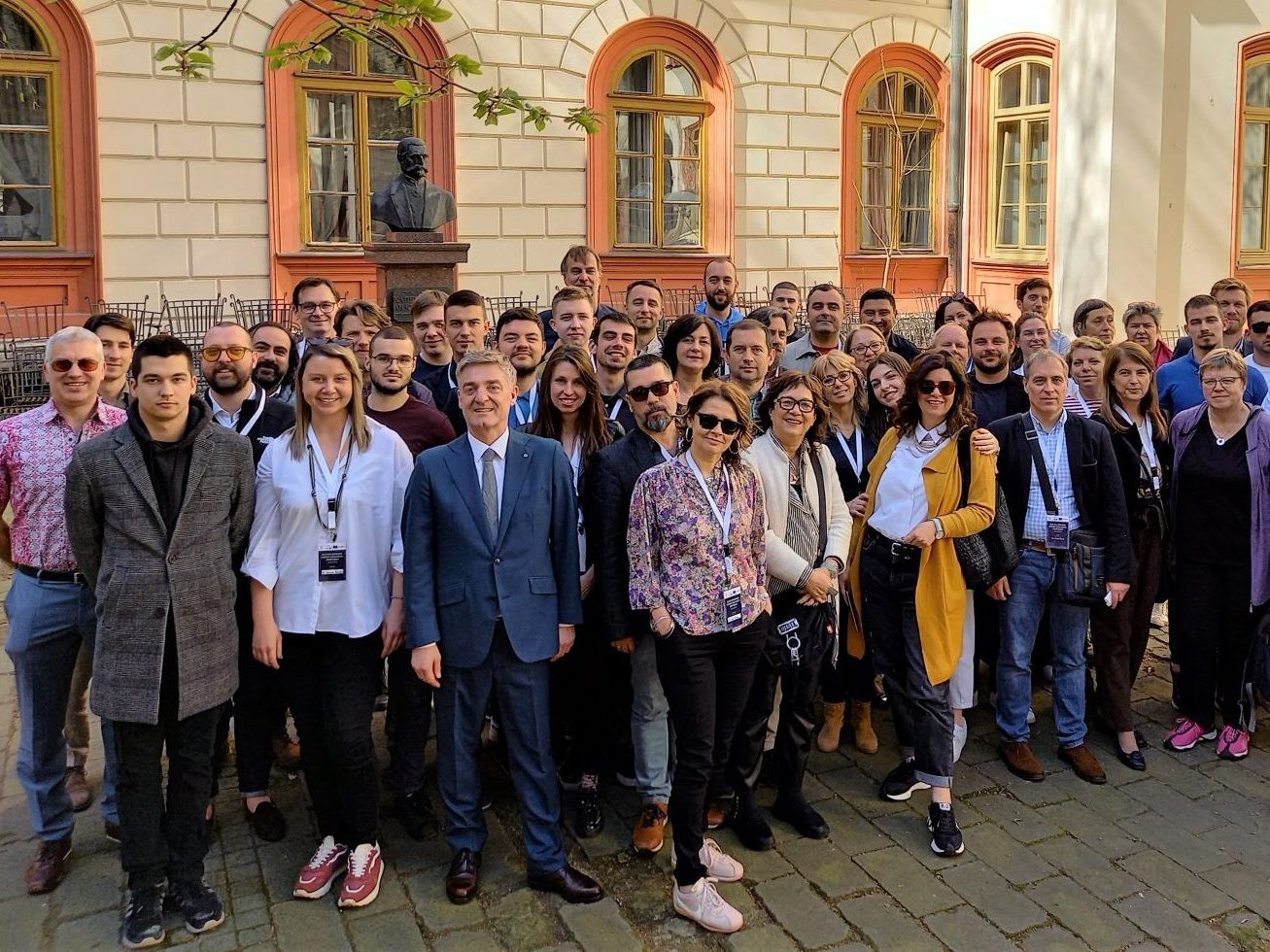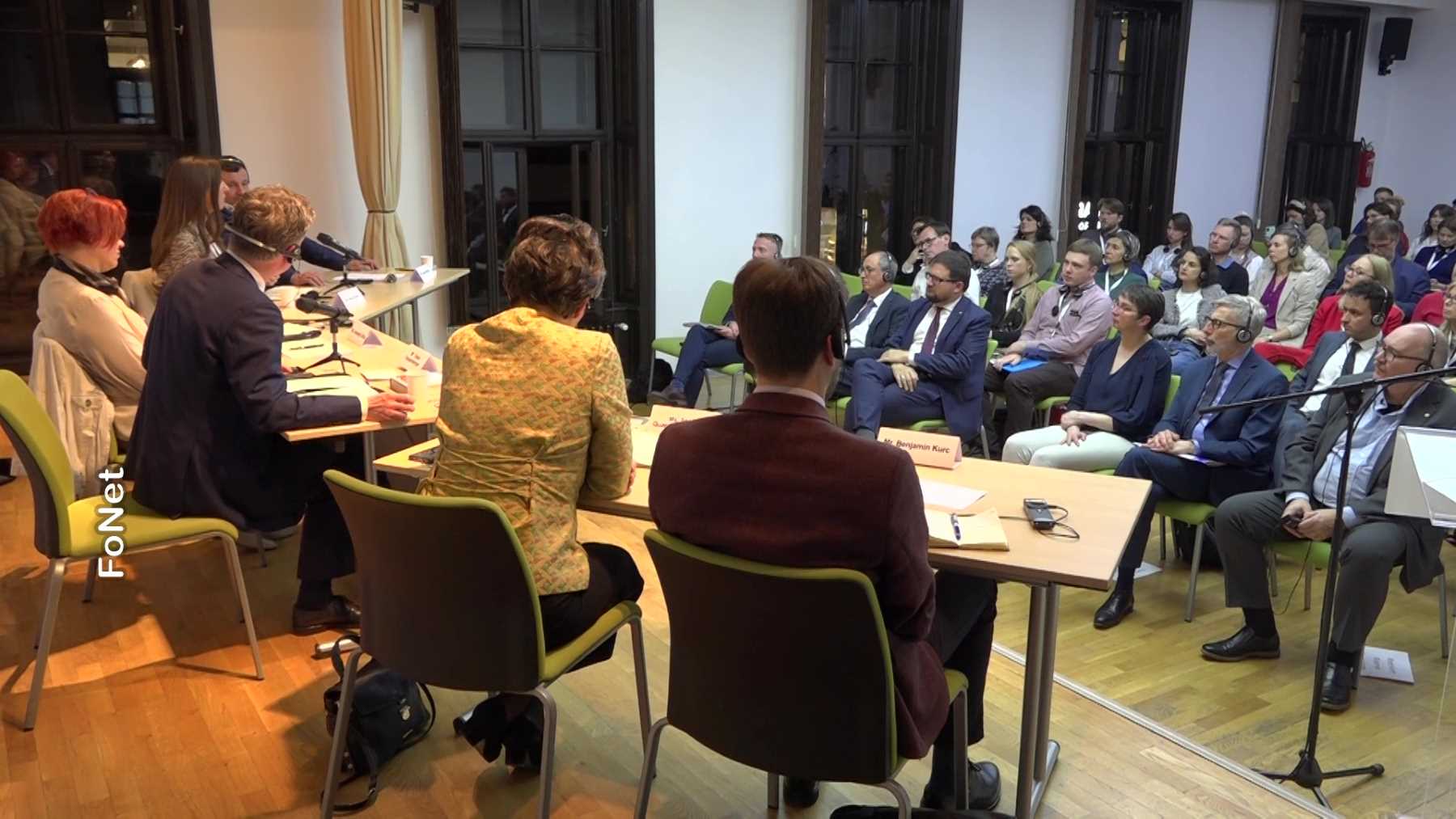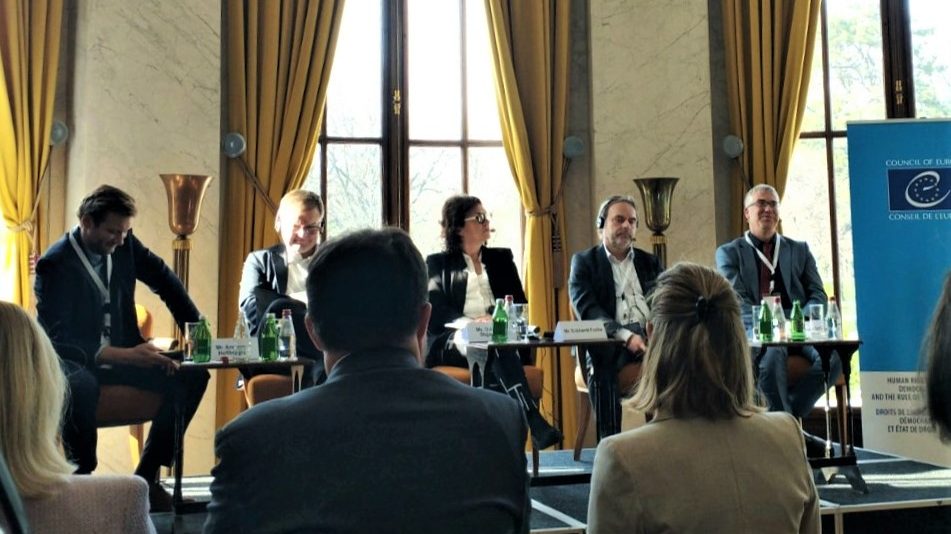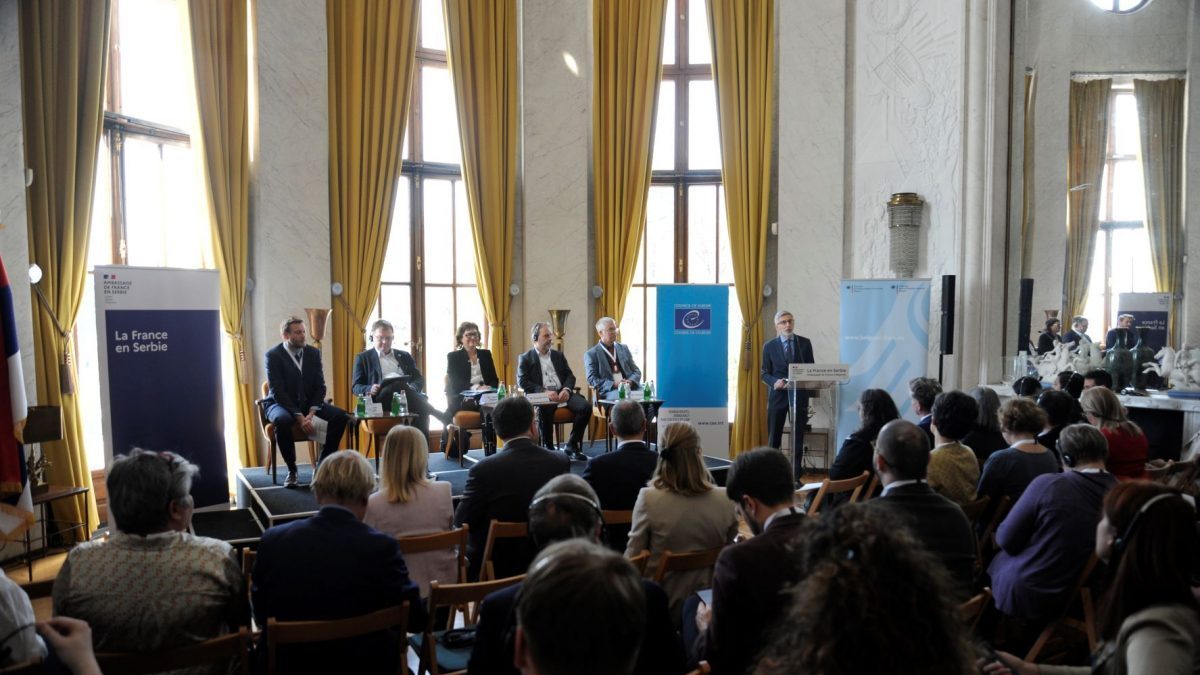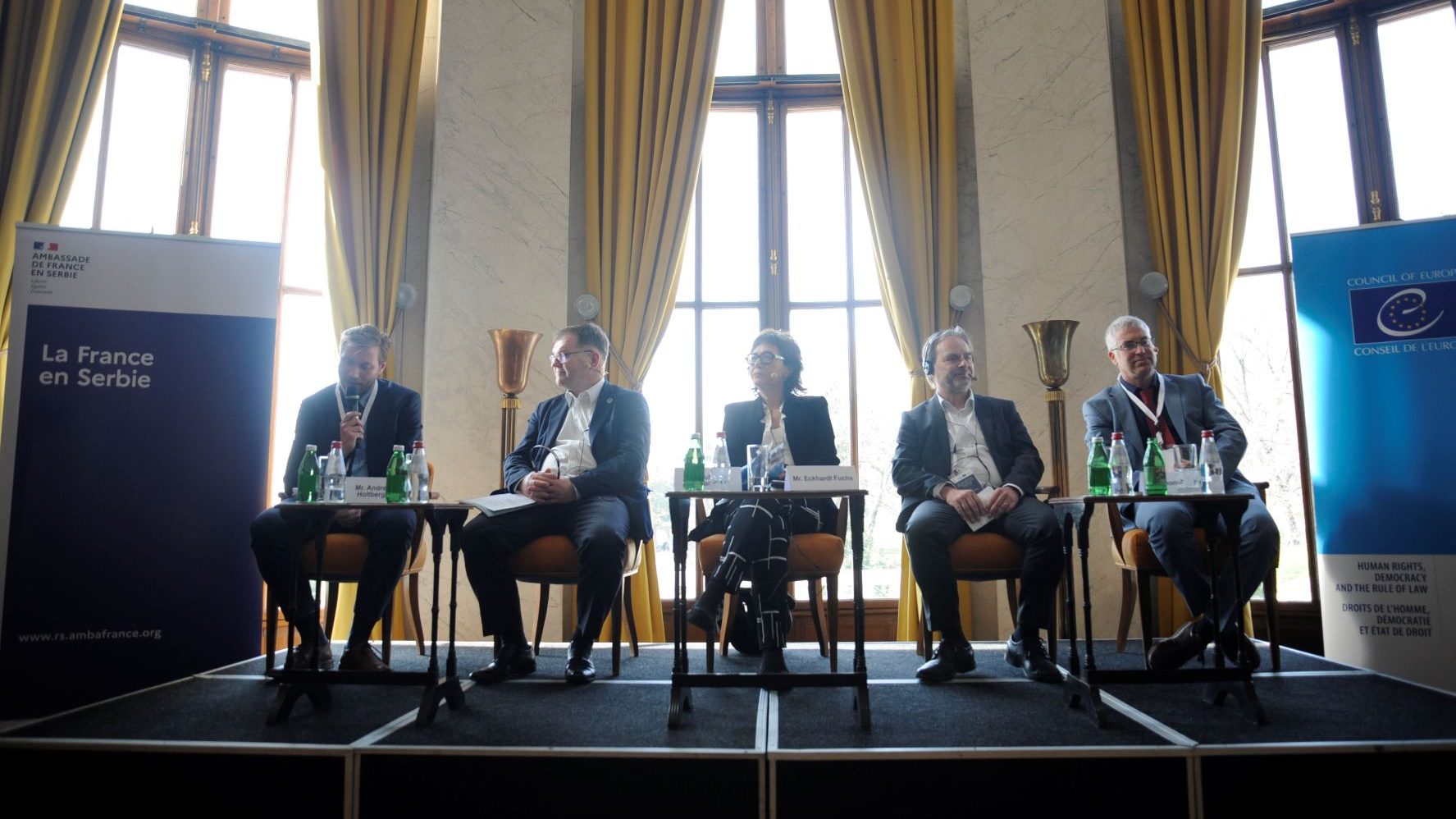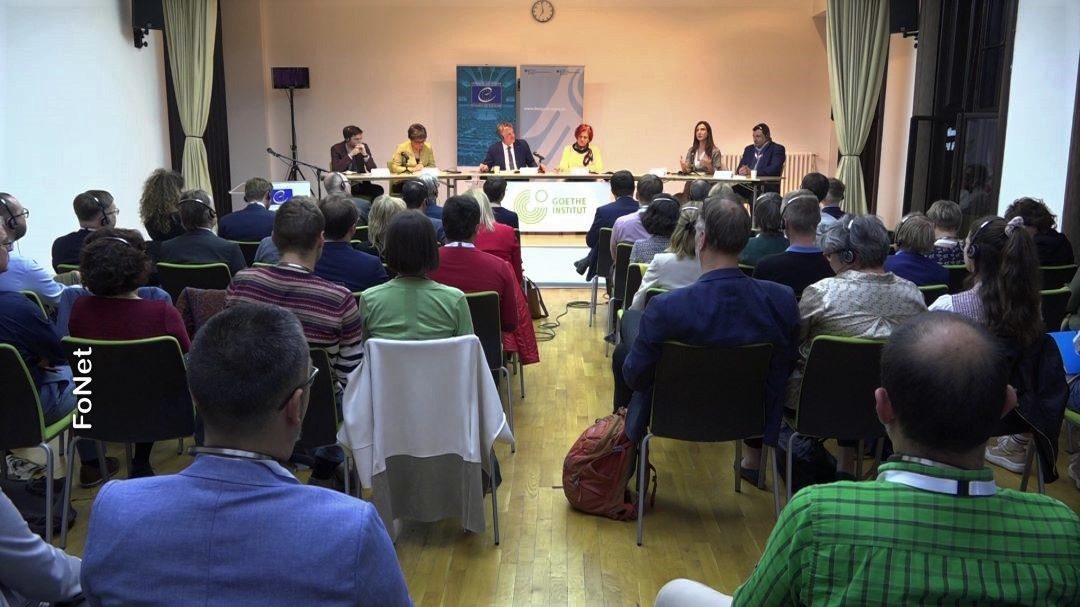Second Belgrade History Teaching Symposium “History and memory culture for Europe: 60 years of Franco-German cooperation Inspiration for cooperation in Southeastern Europe and contribution to European unity” was held at various venues (Embassy of France, Ethnographic Museum, Goethe Institute, University of Belgrade Faculty of Philosophy) on the 23rd and 24th of March 2023. More than 70 participants - history educators, future history educators, history education experts, Council of Europe representatives and others gathered to discuss 60 years of Franco-German cooperation as a contribution to European unity and identify how far it can be an inspiration for multilateral cultural cooperation in South-Eastern Europe.
The event was organized as part of the Francophonie Month in Serbia by Council of Europe office in Belgrade and Education for the 21st Century, together with various partners: Observatory for History Teaching in Europe Faculty of Philosophy, Belgrade, Georg-Eckert-Institute, Braunschweig, embassies of Switzerland, France, Germany, Poland, as well as EuroClio – European Association of History Educators and OFAJ (Franco-German Youth Office).Together with partners and institutions from different European countries, the intention was to create a space for a democratic dialogue, which can be transferred to the public sphere and educational systems. The guiding questions of the symposium considered the role of history education in post-conflict settings as a potential agent in the process of building peace and European unity. Another important aspect of history teaching was related to the enhancement of education for democracy, diversity, and respect of human rights in inclusive and dynamic societies of the 21st century that face various societal and political challenges.60 years ago, on 22 January 1963, the Elysée Treaty created a new basis for Franco-German relations. This development of Franco-German friendship following the Second World War was carefully prepared by public diplomacy events such as the Reconciliation Mass at the Reims Cathedral on 8 July 1962, celebrated by President Charles de Gaulle and Chancellor Konrad Adenauer, and Charles de Gaulle’s “speech to young Germans” in Ludwigsburg on 9 September 1962. The Treaty is a political agreement of friendship between France and West Germany. Following its signing, Germany and France established several instruments for strengthening their relations, following their history of rivalry and wars. This new cooperation included the areas of culture, education and youth with a particular focus on history education and shared memory culture as a prerequisite for achieving greater European unity. After 1990 exchange and cooperation with Poland was established through the “Weimar Triangle” supporting multilateral approaches. With the Stability Pact for South-Eastern Europe in 1999 the Franco-German Youth Office developed cooperation with young people from Southeastern Europe, through the foundation of the Regional Youth Cooperation Office in Paris (2016), and then also established in Tirana.
-
- The first day of the symposium was opened with two city guided tours for the participants showing the Ottoman and Jewish heritage of Belgrade and controversial murals of the 20th Century history in the city grounds. The opening remarks were given at the Embassy of France by:
- E. Mr. Pierre Cochard, Ambassador of France
- E. Ms. Silvia Davidoiu, Ambassador of Romania, President of the Group of Francophone Ambassadors in Belgrade
- Tobias Flessenkemper, Head of the Council of Europe office in Belgrade.
After the opening remarks the first panel discussion of the symposium “Franco-German friendship & history education: contribution to European unity” was held at the same venue moderated by Mr. Andreas Holtberget, EuroClio. Then, after a short break and the change of venue, the second panel discussion was held at the Ethnographic Museum titled “History education after conflict – Overcoming or cementing divisions?” and moderated by Prof Marko Šuica, University of Belgrade
- The first day of the symposium was opened with two city guided tours for the participants showing the Ottoman and Jewish heritage of Belgrade and controversial murals of the 20th Century history in the city grounds. The opening remarks were given at the Embassy of France by:
- In the evening participants of the symposium attended a public event at the Goethe Institute “Franco-German friendship as inspiration for Europe and the Balkans”, opened by:
- E. Ms Anke Konrad, Ambassador of Germany
- E. Mr Pierre Cochard, Ambassador of France
- E. Mr Rafał Perl, Ambassador of Poland
- E. Mr Urs Schmid, Ambassador of Switzerland.
- On the second day two parallel workshops were organized for the symposium participants:
- Workshop 1: History curricula and textbooks and their role for reconciliation: European perspectives and experiences; held at the University of Belgrade and moderated by Ana Radaković, Education for 21st century/University of Belgrade Faculty of Philosophy.
- Workshop 2: Memory sites and history education institutions as places for democratic learning; held at the Ethnographic Museum and moderated by Nevena Bajalica, Terraforming, Novi Sad.
During the workshops the participants were able to share their thoughts on the previous day, discuss the information they received, share their thoughts and ideas on practising History education for democracy, diversity, and respect of human rights in inclusive and dynamic societies of the 21st century that face different societal and political challenges inspired by the Franco-German, Swiss, Polish, Cypriot, other South-Eastern and European practices. Participant reflections were later presented in the plenary.
Finally, during the closing session moderated by Prof Marko Šuica, University of Belgrade Faculty of Philosophy presenters from the parallel workshops gave their key notes before the closing speeches were given.
The second parallel workshop was held at the Ethnographic Museum and moderated by Ms. Nevena Bajalica, Terraforming, Novi Sad and with the participation of experts including:
- Ivan Maksimović, Ethnographic Museum, Belgrade
- Nicolas Moll, Memory Lab, Sarajevo
- Aline Palige, Centre International de Formation Européenne (CIFE), Nice/Berlin
- Lidija Županić Šuica, Education for 21st Century, Belgrade
- Marius Schlageter, German Federal Youth Council, Berlin
The two general questions that the participants of this workshop tried to contribute answering were:
- The role of history education in post-conflict settings as a potential agent in the process of building peace and European unity.
- History teaching as education for democracy, diversity, and respect of human rights in inclusive and dynamic societies of the 21st century.
You can read the General Report here: Second Belgrade History Education Symposium -

